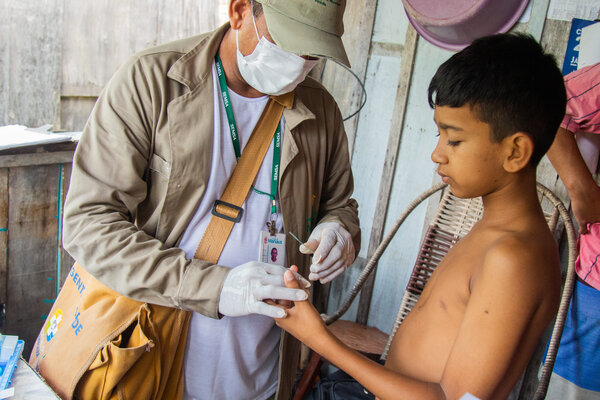G6PD deficiency
Glucose-6-phosphate dehydrogenase (G6PD) is an enzyme which helps to maintain balance within human cells in response to oxidative stress. There is no alternative pathway for maintaining balance in red blood cells as these cells have a simplified metabolism. Oxidative stress causes the rupture or destruction of red blood cells (haemolysis) in G6PD-deficient individuals.
G6PD deficiency is the most common human enzymatic disorder and is prevalent in populations that are, or have been, exposed to malaria.1 G6PD deficiency possibly provides a protective effect against malaria, though data are conflicting on the specific nature of this effect.1 G6PD-deficient individuals usually have no symptoms unless exposed to oxidative stress caused by certain factors, most notably foods such as fava beans, and medications, including 8-aminoquinoline antimalarial drugs.2 For more information, see the section on Importance of G6PD diagnosis for P. vivax treatment.
G6PD deficiency and P. vivax malaria treatment and prevention
P. vivax relapses increase malaria burden and promote transmission. To prevent P. vivax malaria relapses, either chloroquine or an artemisinin-based combination therapy (ACT) must be given for the treatment of the acute phase in combination with either primaquine or tafenoquine. Both of these medicines cause the rupture or destruction of red blood cells (haemolysis) in G6PD-deficient individuals, which may lead to severe anaemia and potentially the need for a blood transfusion. It is therefore necessary to adequately detect G6PD deficiency before administration of either primaquine or tafenoquine for relapse prevention. For more information, go to the section on G6PD diagnostics.



